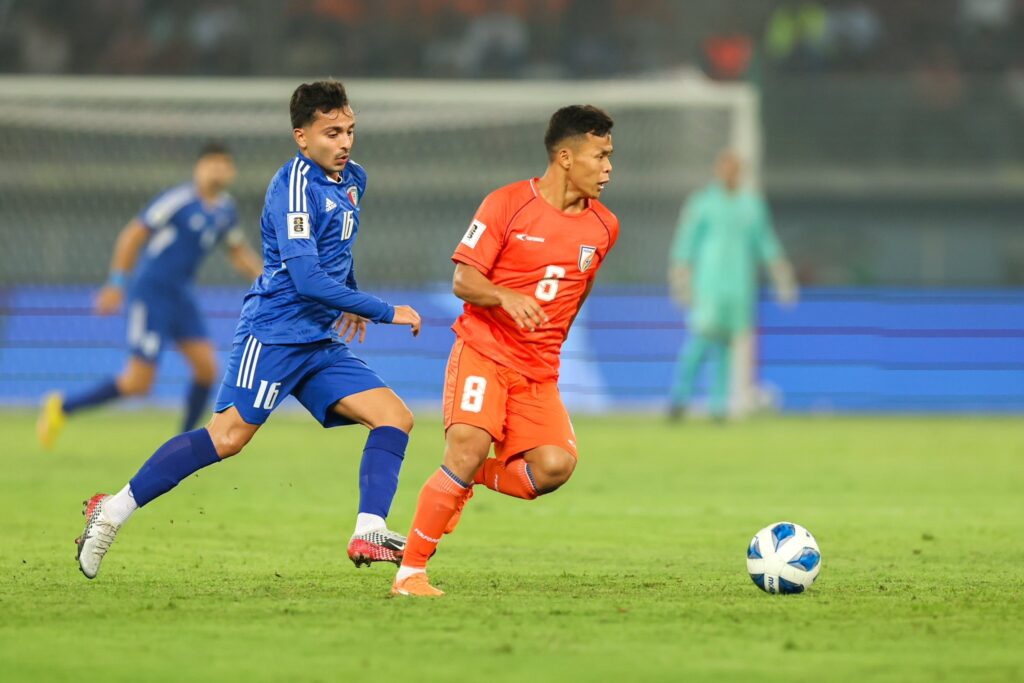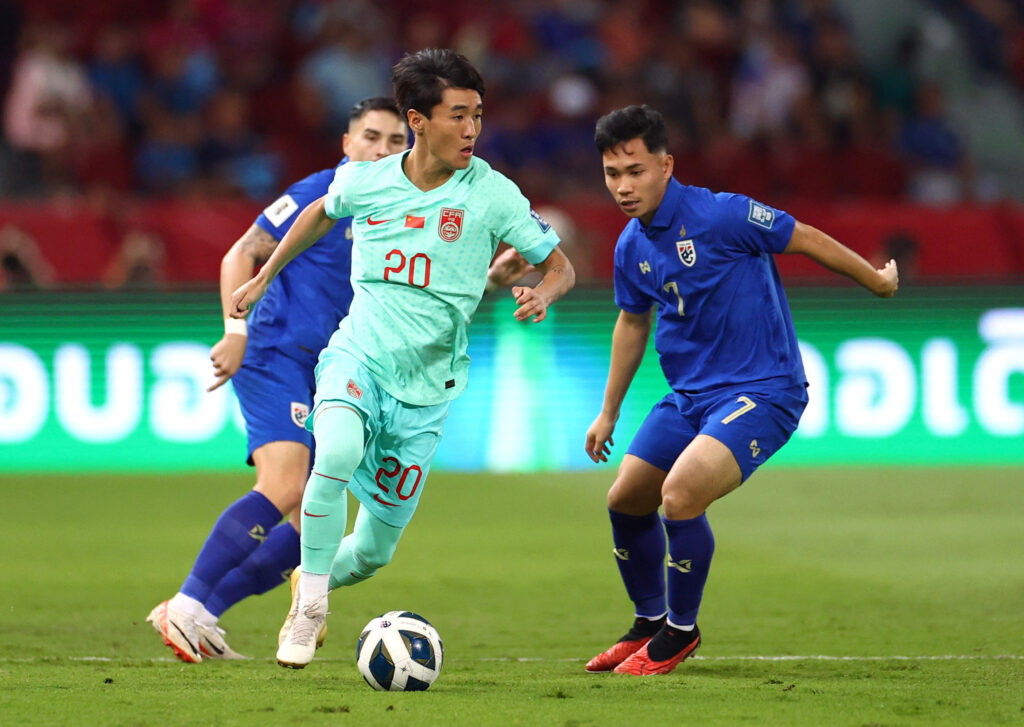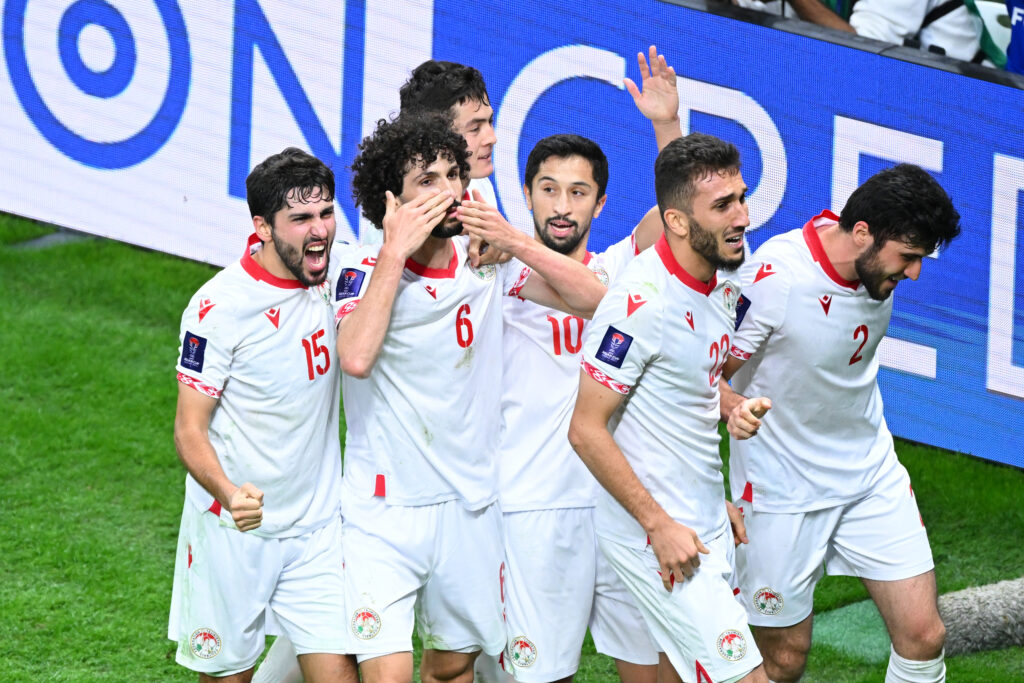
FIFA World Cup qualification in Asia hits another pivotal juncture this coming week as the final two matchdays of the Second Round play out.
With a broadly predictable run of results so far, only a few spots remain available to guarantee progression to the Third Round, and an early ticket to Saudi Arabia for 2027’s AFC Asian Cup, as Asia narrows to the last 18 towards North America.
While Asia’s elite continue their World Cup preparations, in large parts unfazed and unchallenged in qualification thus far, we instead turn to Asia’s middle order, the very group of nations that pounced on the narrative at the Asian Cup at the start of the year, to take centre stage in the chase for the precious remaining spots.
Amidst countless dead rubbers and broad predictability this coming week, three matches in particular stand out, not only as qualification-determining, but generationally defining for the nations concerned.
The World Cup cycle remains broadly in its infancy, less than a year on from its initial kick off, and only four months on from the outgoing Asian Cup cycle, yet the momentum and progress could be over for some within the week.
With that backdrop in place, three key clashes this Thursday are primed to showcase Asian football in its brightest light so far this campaign.
Kuwait and India battle with more than World Cup qualification on the line
Step back nearly 50 years, the prospect of not qualifying for the final 18 in Asia would have been unthinkable for Kuwait. However, contemporary times call for a realignment in expectations.
At least a decade will have passed between Asian Cup qualifications for the once continental champion. The now distant memories of qualifying for the 1982 World Cup pale into comparison with the muted hopes the nation’s football now holds.
Painful capitulation to regional rivals Jordan back in 2022 was one thing, but the 2-1 defeat to the rising stars of Indonesia, to deny Kuwait a return to the Asian Cup following FIFA suspension, compounded the changing tides, all in front of a beleaguered Kuwait City crowd. A bleak, but growing norm for the nation’s football fans.
While a final shot at Asian Cup qualification isn’t in the balance just yet, to succumb this early in World Cup qualification would be a pivotal judgement on the current state of their football. It comes at a time of change in the Emir state, under the newly assembled Portuguese structure overseen by director of football Diogo Rebelo, and led by senior coach Rui Bento.
The similarities in approach with reigning Asian champions Qatar won’t be lost on anyone.
Two Gulf states, punching beneath their (financial) weight, look to Iberia for structure and redevelopment, built around a promising youth generation. Qatar, of course, have already guaranteed their progression, with back-to-back victories against the Kuwaitis in March. In Bento’s eyes, they represent the possible, at least in the long term.

In the short-term, Kuwait head into the final two matchdays trailing both India and Afghanistan by a single point, knowing that progress remains in their hands. The Kuwaitis will host the Afghans on the final day, yet first and foremost, their trip to Kolkata takes top billing, with both sides knowing a win would put them well and truly in the box seat for a spot in the Third Round.
While it’s a massive match for Kuwait, the same expectation weighs heavily on India’s shoulders. It’s a well-worn cliché for coach Igor Stimac’s tumultuous tenure, but this match like none before feels like a defining moment in his leadership.
In anticipation, Stimac has built up the match as one that “could change careers” of his players, crying out for a positive trajectory, at a time of reflective realisation that transition is needed now, more than ever.
The news of legendary captain Sunil Chhetri’s imminent retirement is both a crushing blow, to a team that has at times relied exclusively on the striker’s contribution, but also as a rallying call ahead of a match that they dare not lose.
The match also represents an oddly familiar recent rivalry being stoked between the pair. In the last year, India and Kuwait have faced one another three times, including last July’s SAFF Championship final shootout win for Blue Tigers.
A repeat of any of their previous, cagey and ill-tempered encounters, will ensure a thrilling climax, however with World Cup qualification progression, and a guaranteed passage to the Asian Cup affixed, it promises to up the stakes that little more.
Managerial pragmatism leads the way in the race to join Korea in Third Round
Few groups have been so intrinsically attached to the fortunes (and misfortunes) of those in their dugouts, than Group C.
While South Korea are all but through, the farce that greeted Jurgen Klinsmann’s appointment, then subsequent sacking, has thrown an added layer of uncertainty around a campaign that the Taeguek Warriors would easily navigate in normal circumstances.
That hasn’t been helped by the form of the others, however, who through their very own managerial chopping and changing have thrown the narrative into a tailspin, leaving the fight for who will join Korea in the Third Round wide open.
China currently hold the keys, broadly thanks to their opening victory against Thailand back in November. Back then, Wang Shangyuan’s second half winner granted Aleksandar Jankovic a debut victory that went some way to bolstering their advantage heading into the Asian Cup break.
On the other side, defeat spelt the premature end to Aleksandre Polking’s up-and-down spell in Thailand, stoking their own soap opera that engulfed the squad ahead of Qatar in January.
What six months in football can do for one’s exploits. Thailand rallied through adversity to surprisingly make the knockouts of the Asian Cup under new coach Masatatadi Ishii, before backing it up with a committed 1-1 draw with a freshly managerless Korea in March.

China, on the other hand, fizzled out with a whimper in Qatar, with Jankovic being replaced by former Oman coach Branko Ivankovic. Dropping to a stalemate against Singapore in his first match in charge, coupled with Thailand’s result in Seoul, tightened the pack right up again heading into the final month of the round.
Momentum is key at this juncture, which puts both sides at odds with the lack of stability they’ve had over the last year. That being said, it offers both the opportunity to make up ground on Thursday, with China well placed to guarantee progression with victory, while Thailand look to draw level with the Chinese knowing the final day fixture list favours them.
As Thailand demonstrated in Seoul, their counter-attacking game away from home is suited for these moments, as it very nearly achieved against an ailing Saudi Arabia in Qatar. Their ability to soak up pressure and pounce through their growingly potent “Supa” frontline has already been illustrated; replicating that against a Chinese side looking particularly shaky in defence isn’t the most daunting of tasks.
What China have, however, is home advantage, not always the ace up the sleeve they may hope, but something to lean into, ahead of this critical matchup.
Ivankovic’s nous, like Ishii, to frustrate rather than attack the occasion suggests a tighter affair than most would hope for, while the form of Wu Lei in attack, who’s scored four in the his last two qualifiers, and 15 goals already in the Chinese Super League this campaign, offers them the perfect outlet for a smash-and-grab.
Over the course of qualification both sides have struggled to find the perfect blend at both ends of the pitch. While there continues to be a distinct flavour of pragmatism in transition, the match itself remains critical in their progress forward under two fledgling coaches.
All eyes on Shenyang this week as Group C hits its defining moment.
Asian Cup optimism hits World Cup qualification realism
The undoubted narrative of Asian Cup was the demise of the so-called continental elite, and the resurgence of the next wave. From Jordan’s unexpected appearance in the final two, to Tajikistan’s run to the quarter-finals on debut; the tournament sprung up surprise after surprise that promised a real shake up at the top of Asian football in the upcoming World Cup cycle.
Five months later, the two neutral darlings of that disruptive month face off to continue their story into the next phase of qualification. While January’s historic campaign feels an age ago now, both sides returned in similarly impressive form for March’s qualifiers, setting up their perfectly poised encounter in Amman this Thursday, with victory for either side expected to clinch progression at the expense of their opponents.
Three months ago, Jordan rather predictably rolled out their qualities in two handsome victories over the group’s growing whipping boys Pakistan, including a superlative-laden 7-0 homecoming in the Jordanian capital.
While March wasn’t exactly a reading on how Hussein Ammouta’s side may conclude their Second Round campaign, it did underline their strength in attacking areas, in particular through Mousa Al-Tamari’s five goals over the two ties.

On the other side, Tajikistan showed little to no ill-effect from Petar Segrt’s departure in February. His replacement, Georgian Gela Shekiladze, who worked as Segrt’s assistant, has retained his full backroom staff, and crucially a continuity in approach.
While Tajikistan failed to clinch victory in either of their qualifiers against group leaders Saudi Arabia in March, they undoubtedly came out of it with a lot of favour.
Shekiladze’s team attacked their superiors, arguably committing more pressure in the attacking third than Segrt ever did, while continuing to play at their growingly distinct tempo.
While Jordan’s form has been impressive, a cursory glance back to the start of this campaign, with a draw to their upcoming opponents, and a loss to the Saudis, may then be worth considering with the mirror schedule set for June.
With that in mind, Tajikistan, having secured an essential draw in Dushanbe against the Saudis courtesy of a late goal by Rustam Soirov, have the slight psychological advantage. That draw leaves them two points behind the Jordanians, with Pakistan to follow in the final match, while Jordan head to Riyadh.

Even a draw in Amman on Thursday would allow Tajikistan to know the scoreline needed on the final day, if Jordan were unable to wrestle three points off the Saudis. Hypotheticals are plentiful at this time of the campaign, but it shouldn’t be underestimated how this will impact the tactical approach of both sides.
Six months ago, two sides flew out to Qatar with little expectation but with everything to gain. In the coming week, both enter with significant attention and hope of progressing their reputations gained at the Asian Cup, with arguably everything to lose.
The shifting sands of international Asian football will undoubtedly throw another curve ball for good measure.
Listen to Episode 223 of The Asian Game Podcast as we preview the Asian Qualifiers and speak with Yohei Takaoka




